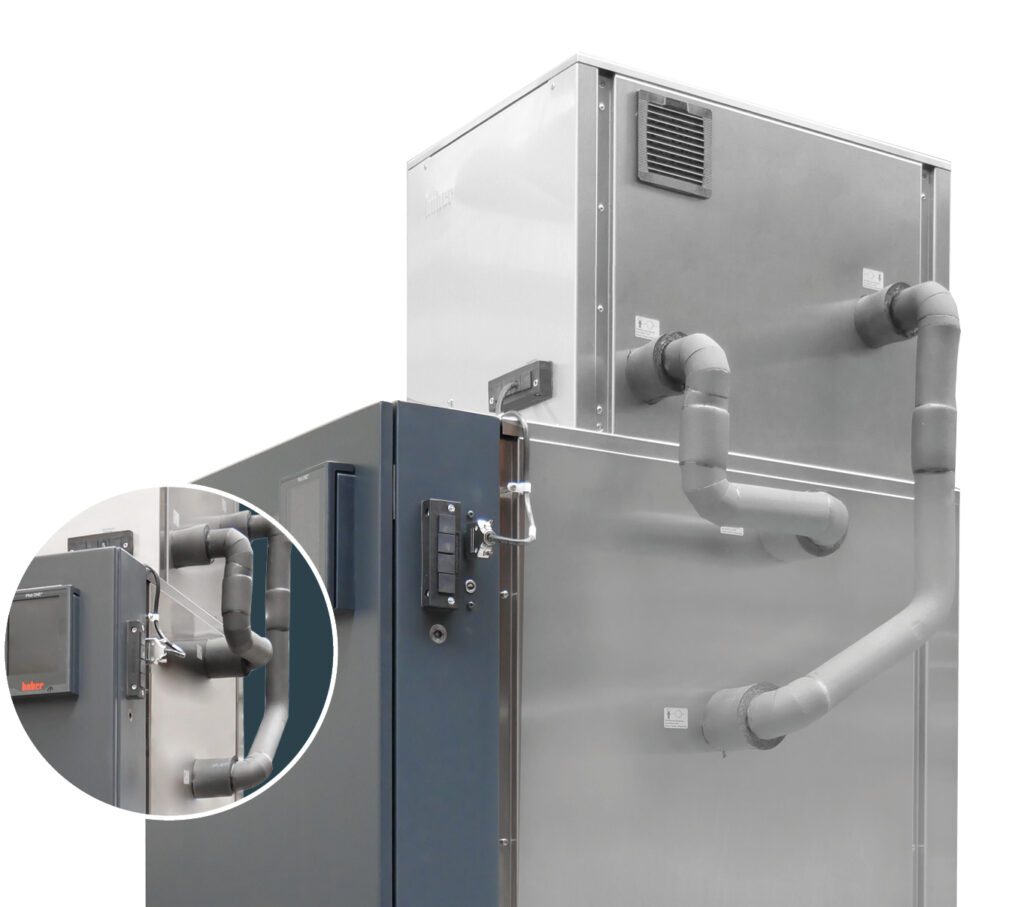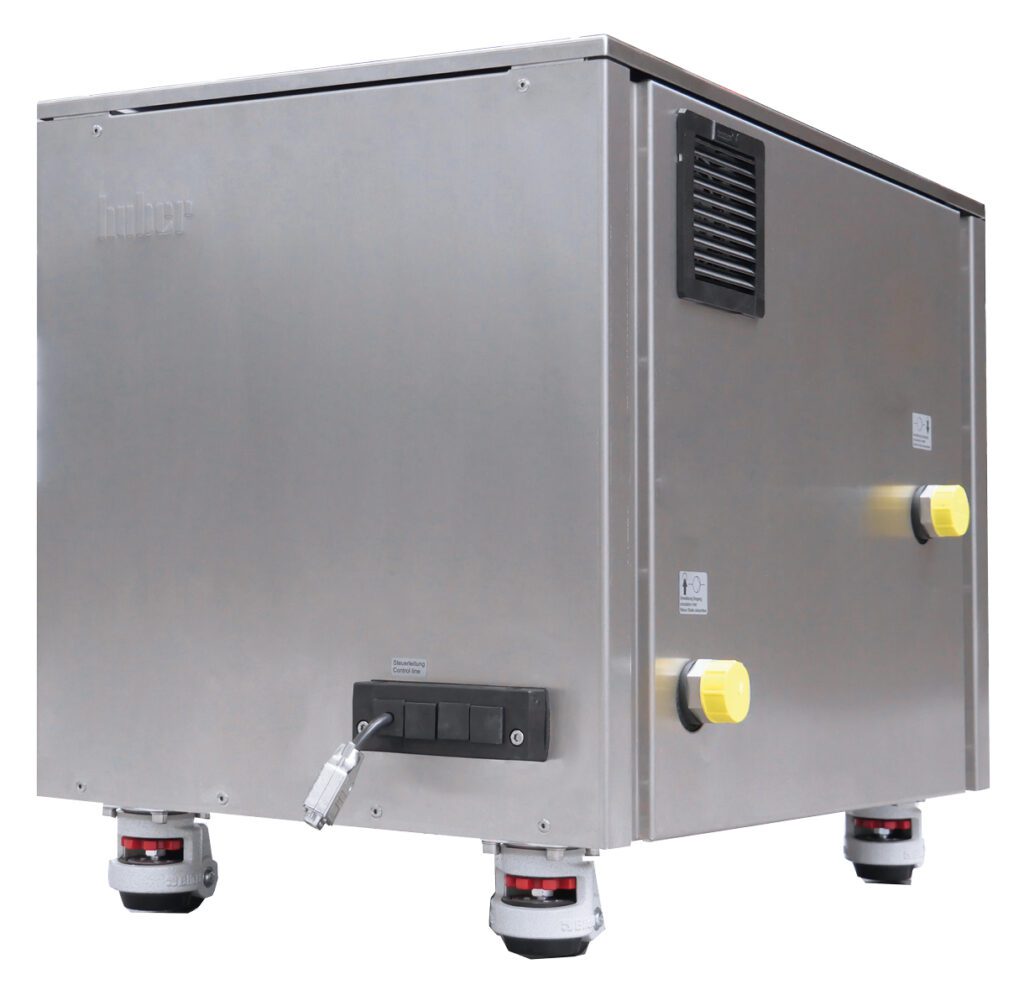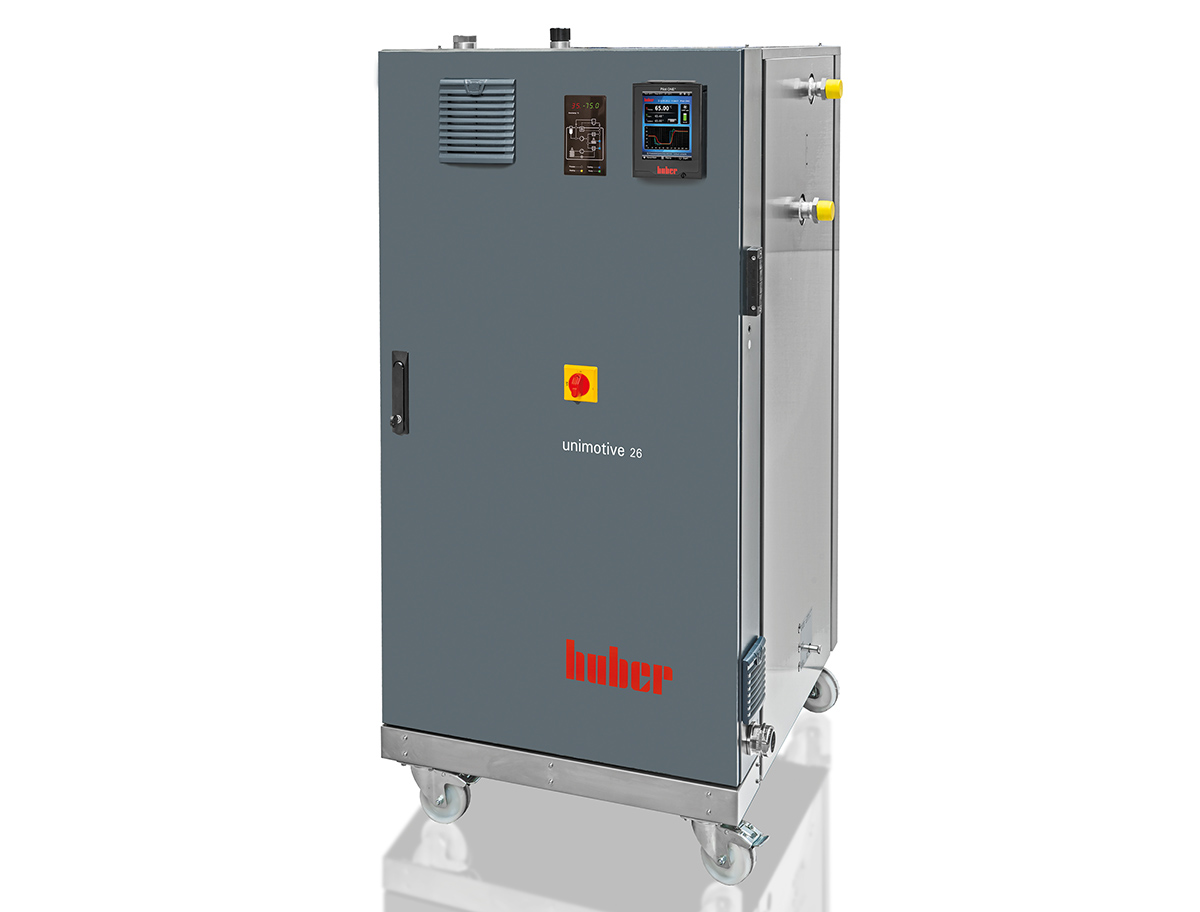Temperature control is a critical factor during stress and load testing in the development of batteries, materials and other vehicle components. The heat transfer fluid (HTF) used in testing is often a water-ethylene glycol mixture.
To address these applications, thermoregulation specialist Huber has expanded its portfolio to include temperature control systems designed and tested specifically for use with water-ethylene glycol over the temperature range of -45° to 95° C for the automotive industry.
Based on Huber’s Unistat technology, which the company developed by over 40-years ago, these systems operate with a very low volume of HTF, and feature plate heat exchangers and a sealed fluid system. Huber says this results in very short “time to temperature” times, as well as extremely responsive, stable, accurate and repeatable temperature control.
The Unimotive series comprises five units with up to 35 kW cooling capacity and 24 kW heating capacity. Each model is fitted with a magnetically coupled, speed-controlled pump with a maximum flow of 145 l/min and pressure up to 5.5 Bar.


Unimotive devices can be individually configured and adapted to various test situations, or integrated into existing test benches. Various sensors, expansion vessels, pumps and data interfaces are available as accessories.
Huber can build custom-designed solutions for demanding applications, for example those requiring high pressures or aggressive fluids.
All Unimotive models are operated using a touchscreen controller that supports the most common data communication protocols (including Profibus, Modbus, TCP, Ethernet, OPC-UA, RS232 and USB), enabling easy integration into automated industrial environments.
Source: Huber


















































































